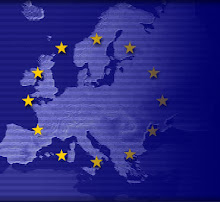So, here's the first post. sorry about the lack of formatting, it wont let me keep it in outline form unless I go through and indent every line by hand, which I unfortunately don't have time to do.
1. What is Civilization?
- Civilized by their own standards
- Follow rules of society/ laws
- Evolution over time
2. What is necessary for Civilization to occur?
- Share common beliefs
- Live close
- Leaders/ authority that enforces laws and guides the people
- Stationary in one place/ not nomadic
- Specialization – being able to concentrate on more than survival
- Communication – e.g. between villages even
3. What can destroy Civilization?
- Lack of leader
- Being conquered
- Lack or resources/ disaster
- Destruction of common belief
- Genocide
- Wars (Civil War)
- Lack of development – reach a plateau
Civilization does NOT equal Society
For Society to grow they need a certain amount of technology (horse shoes/plows/machinery)
Specialization – being able to focus on culture/tools/other ideas other that survival
Technology frees people to be able to follow cultural pursuits
Mazlo’s Pyramid – self actualization
Often, when civilizations collapse, then they have to rise again from the ashes and rebuild themselves.
The Later Middle Ages
I. The Black Death (1347-1350)
i. major cause of the collapse of the feudal system
ii. Bubonic Plague
iii. Ships now had three sails, so they could sail throughout the winter and brought rats with flees to Europe
iv. Starts in Italy and went North
v. Periodic breakouts for the next 20 years
a. Causes
i. Overcrowding (cities and homes)
ii. Poor sanitation
iii. Poor Hygiene
iv. Poor Nutrition (25% of harvest poor in previous 50 years)
b. Results
i. Opened people’s eyes to how they were living (Sanitation, Religion)
ii. Created the start of the Renaissance
iii. Lowering of the standards of the clergy = starts the reformation
iv. Serfdom died out – peasant revolts
v. England – Closure Laws – peasants couldn’t graze their animals of public lands, they had to own or pay a fee
vi. Persecution of Jews, later allowed back into France and to lend Money with high interest rates – Jews = scapegoats
Art and Literature reflect the pessimism of the time “Dance of Death”
German and Scandinavian the most pessimistic
Population rebound after the Plague took almost two centuries (mid 1500’s)
II. 100 Years War (1337-1453)
a. Cause = Britain and France both claimed a piece of France (Aquaitaine)
i. French tried to kick British out, fought on and off for 116 years
ii. British actually captured and ransomed the French King
iii. British started out strong, got all the way to Paris
iv. French didn’t favour the King
v. Joan of Ark turned it around for the French – she was told by voiced to defend France (She united the French states to a single country)
vi. She was the Maid of Orleans
vii. Was captured by the British, and burned for Witchcraft (hearing voices, wearing men’s clothing)
viii. It created modern states in England and in France
1. Why? Peasants wanted more control over the money
2. Creation of the Parliament in England
3. Lead to the French Revolution
4. Taxes needed to pay for the War
5. Lead to a more liberalized Society
III. Crisis in the Church
a. Why would a Rebirth start?
i. Need for Knowledge
ii. Church has to lose its monopoly on knowledge so it can be spread
b. John Wyclif
i. Gods Law was more important than Popes Law
ii. Writes an English Bible (predecessor of Luther)
iii. Lollards
c. Jan Hus
i. Hussites - followers
ii. Stages some large rebellions
iii. Followers took his reforms a sign of national unity
iv. Burned as a heretic
d. Babylonian Captivity (1309-1377)
i. Vatican in France = two popes (Italian and French)
ii. Division of the Church
iii. Great Schism (1377-1417)
iv. Even more expensive for the catholic peasantry
v. Moved the Vatican to Avignon
vi. Italian Pope Urban V went after Absenteeism
The Pope was INFALLIBLE! He cannot be wrong…but there were two…uhuh…
Conciliar Movement - trying to reform the church, to get rid of Simony, make the church more democratic…it FAILED, but ended the Great Schism (byebye Frenchie)
IV. Collapse of the Byzantine Empire
a. Roman Catholic Church vs. the Eastern Orthodox Church (Rome and Constantinople)
i. 1453 – the capital of the Eastern Orthodox Church is taken by the Ottoman Empire (Muslims take over) – go into Eastern Europe, the Balkan, and threatened Austria and Hungary (Austro-Hungarian Empire)
b. The Byzantine Empire had a huge Library - Greek Plays. Scholars took them and ran west
c. Opera was an attempt to recreate Greek plays … and they Failed
V. Vernacular Literature
a. Chaucer – Canterbury Tails
b. Dante – Divine Comedy
c. Villion – Grand Testament
VI. Life in the Middle Ages
a. Get married at 16-18
b. Marriage for economic reasons
c. Prostitution was common, even sanctioned by the city
d. Agricultural
e. Most Guilds were Men (Labour Unions)
i. Became corrupt, didn’t want new people to come in, had to pay a few, had to be a descendent of someone who was in the Guild
f. Entertainment
i. No jousting
ii. Common people - alcohol (safer than drinking the water)
1. Bull Baiting – starved dogs
VII. Scholasticism - St. Thomas Aquinas (got fat, special table to accommodate his gut…)
a. God gave people a mind so that they could use logic
b. Faith and reason don’t have to fight against each other

No comments:
Post a Comment